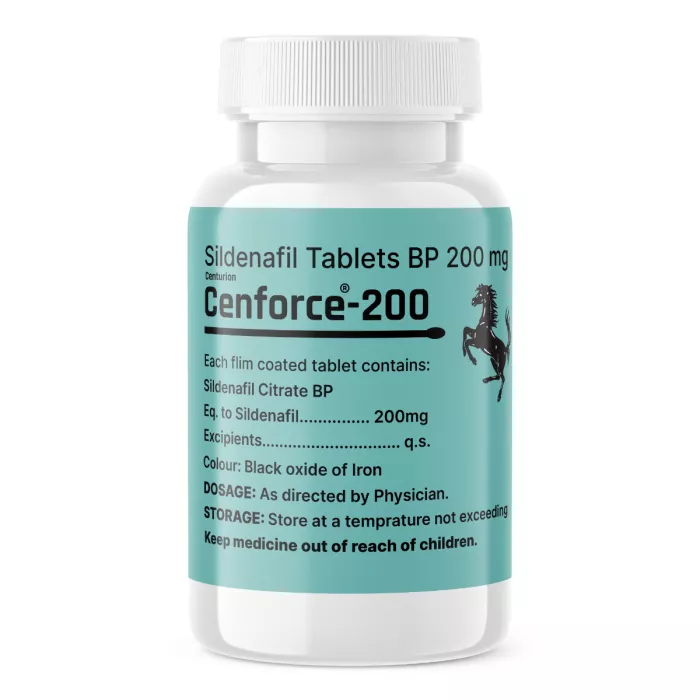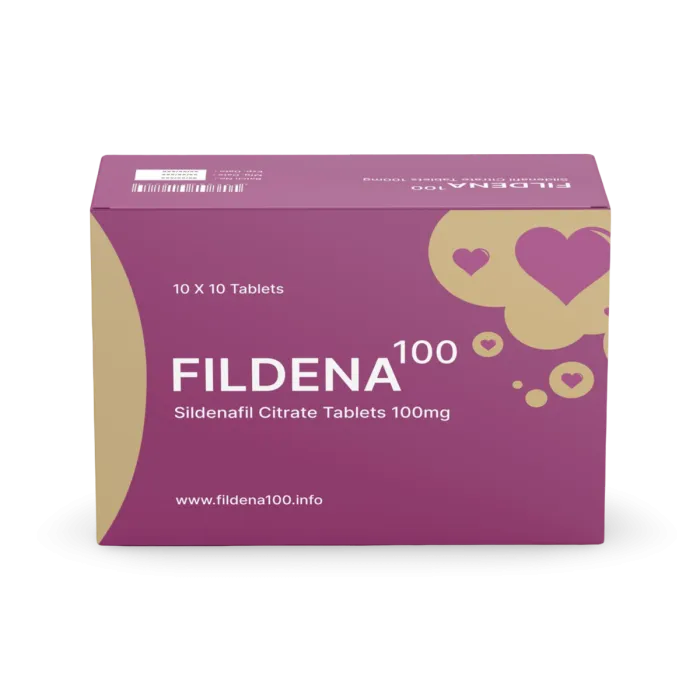Premature Ejaculation (PE) is a common but frequently overlooked male sexual health issue that affects millions of men or Assigned Males at Birth (AMABs) worldwide. It happens when ejaculation occurs earlier than expected, generally within a minute of penetration, leaving both partners dissatisfied and frustrated.
An occasional occurrence is natural, frequent or ongoing PE may damage self-esteem, create relationship stress, and even cause anxiety about future sexual interactions. Many men even go through silently with this problem, believing it is untreatable or too embarrassing to disclose.
However, PE is not a lifelong condition; there are identifiable reasons, established therapies, and useful coping strategies. This article will cover its symptoms, causes and treatments to help you regain control, enhance closeness, and restore sexual confidence.
What is Premature Ejaculation?
Premature Ejaculation happens when a man consistently ejaculates before or shortly after vaginal penetration. This lack of control frequently triggers feelings of irritation, anxiety, and guilt. It is one of the most common male sexual dysfunctions, affecting a large number of men at some time in their lives.
PE may be categorized into two types:
- Lifelong (Primary) PE: This form of PE has existed since the first sexual contact. The individual has always had a short ejaculatory latency time (the period between penetration and ejaculation).
- Acquired (Secondary) PE: This type of PE appears later in life after a time of previously normal ejaculatory function.
Save up to 90% on your medicine bills

Cenforce 200 mg

Kamagra Oral Jelly Rx 100 mg

Fildena 100 mg

Vidalista 60 mg
What are the symptoms of PE?
While the most common symptom of PE is the short ejaculation time, it has other important psychological and emotional effects, such as:
- Distress and frustration: Feeling troubled or agitated by a lack of control.
- Anxiety: Worrying about sexual performance, leading to a continuous cycle that worsens the condition.
- Avoidance of intimacy: Avoiding sexual engagement to prevent negative feelings connected with PE.
What causes Premature Ejaculation?
The common causes of Premature Ejaculation often involve psychological, physical, and lifestyle factors.
Psychological factors
The following mental health issues can affect your control over ejaculation:
Performance Anxiety: Worrying excessively about sexual performance is one of the most prominent psychological causes of PE. When males are always concerned about whether they can satisfy their partner or keep an erection, it produces stress and Anxiety. This increased Anxiety stimulates the neurological system, forcing the body to speed through arousal and culminating in an early climax.
Stress and Depression: Mental health has a significant impact on sexual well-being. Chronic stress from job, finances, or personal difficulties may reduce energy, disturb hormonal balance, and impair attention during intimacy. Depression, on the other hand, can reduce sexual desire and impair the regulation of arousal.
Relationship problems: Tension in a relationship frequently spills over into the bedroom. Conflicts, unsolved disputes, and a lack of emotional connection can all contribute to feelings of distance and pressure. This lack of harmony can make males more self-conscious and less capable of controlling ejaculation, resulting in premature release.
Physical factors
Certain medical issues may also contribute to PE. These often include:
- Erectile Dysfunction (ED): Men who struggle to keep an erection may feel compelled to climax fast before losing strength. This Anxiety-driven response might train the body to ejaculate more frequently, eventually leading to a cycle of PE and ED.
- Neurotransmitter imbalance: Serotonin, a brain neurotransmitter that regulates mood and sexual response, is important for controlling ejaculation. Low Serotonin levels impair the brain’s capacity to delay orgasm, resulting in fast ejaculation even with moderate arousal levels.
- Hormonal issues: Testosterone promotes sexual desire and stamina, whereas Thyroid hormones control energy and metabolism. Deficiencies or imbalances in these hormones can impair sexual function, limit control, and raise the risk of PE.
- Prostate or urethral problems: Conditions, such as Prostatitis or urinary tract inflammation, can increase sensitivity in the genital area. This oversensitivity lowers the ejaculatory tolerance, causing males to climax sooner than anticipated.
- Genetic factors: Some men inherit an inherited tendency to ejaculate more quickly, either due to increased penile nerve sensitivity or genetic differences altering neurotransmitter modulation. This can increase the likelihood of PE, regardless of psychological or lifestyle variables.
- Underlying health issues: Diabetes, Obesity, and Hypertension (High Blood Pressure) are all metabolic and vascular disorders that decrease blood circulation, neuron function, and overall endurance. These changes can impair control over sexual reactions, lower confidence, and indirectly cause PE.
Lifestyle factors
Besides physical and mental problems, some unhealthy lifestyle choices could also be a reason behind PE, such as:
- Excessive alcohol and substance use: Regular or excessive alcohol intake and substance abuse disrupt the neurological system and hormonal balance, all of which are required to maintain healthy sexual function. Over time, this interruption in the sexual response cycle may lead to PE and sexual dissatisfaction.
- Sleep deprivation and fatigue: Quality sleep is essential for sustaining energy, mental stability, and hormone control, particularly Testosterone. When the body is deprived of rest, it might result in decreased stamina, low arousal, and poor control over arousal thresholds, leading to rapid ejaculation.
- Sedentary lifestyle: A lack of physical activity lowers blood circulation and weakens the pelvic floor muscles, which are both necessary for maintaining erections and managing ejaculation. Sedentary behavior can also contribute to weight gain, insulin resistance, and cardiovascular problems, all of which are harmful to sexual health.
How to treat Premature Ejaculation?

Fortunately, PE is treatable. Behavioral approaches, medicine, counseling, and some other techniques, are frequently used in combination to get the best outcomes.
Behavioral techniques
Behavioral strategies like the start-stop technique, the squeeze technique, Kegels, and condoms can help treat Premature Ejaculation. Here’s how these techniques are helpful:
- The start-stop technique: This technique involves stimulating the penis to the point of near-ejaculation. At that point, stimulation is stopped until the sensation passes. The procedure is performed multiple times before enabling ejaculation.
- The squeeze technique: Similar to the stop-start approach, this technique includes putting pressure on the end of the penis (just below the head) for a few seconds right before ejaculation. This can lessen the desire to ejaculate and delay orgasm.
- Pelvic floor exercises (Kegels): Kegel exercises can help strengthen the pelvic floor muscles and enhance ejaculatory control. To identify the correct muscles, try stopping your urine in midstream. Once identified, perform Kegel exercises by contracting these muscles for a few seconds before releasing. Aim for five sets thrice daily, progressively increasing the duration and repetitions.
Premature Ejaculation medications
The following medicines can be prescribed by doctors to delay climax:
- Topical anaesthetics: Creams, gels, or sprays with moderate numbing agents, such as Lidocaine or Benzocaine, can be administered directly to the penis before intercourse. They aid in the delay and prolongation of intercourse by lowering penile sensitivity. However, they must be used appropriately to prevent excessive numbness or medication transmission to the companion.
- Selective Serotonin Reuptake Inhibitors: Off-label treatment for PE may include Selective Serotonin Reuptake Inhibitors (SSRIs), such as Paroxetine, Dapoxetine, Sertraline, or Fluoxetine. They are known to cause delayed orgasm as a side effect. The typical adverse effect of delayed ejaculation might be used therapeutically. However, since SSRIs can cause nausea, sleepiness, and reduced libido, they must be administered under the guidance of a doctor.
- Pain relievers: Tramadol, an opioid pain reliever, can slow ejaculation by acting on the brain’s Serotonin and Norepinephrine pathways. This slows down the impulses that cause orgasms, allowing males to stay longer. However, it should only be taken under medical supervision due to risks of dependence and side effects.
- Phosphodiesterase Type 5 (PDE5) inhibitors: PDE5 inhibitors like Sildenafil, Tadalafil, and Vardenafil are the most frequently administered medications for Erectile Dysfunction. However, they may benefit men who have both ED and PE by enhancing erectile quality and raising confidence, which indirectly improves ejaculatory control.
Counseling and therapy
If psychological factors are behind your PE, psychotherapy and couples therapy might help overcome the condition.
- Couples therapy: Couples therapy can provide a secure environment for open discussion of the issue, improved communication, and collaborative problem-solving. Under the supervision of a qualified therapist, couples can learn to improve communication, express their worries and expectations, and create mutual understanding. Therapy can also aid in identifying relationship pressures or emotional hurdles that may be worsening the situation.
- Psychotherapy/sex therapy: Sex therapy is a specific type of psychotherapy that addresses the psychological and emotional elements of sexual wellness. Therapy assists individuals in gaining greater control over arousal and ejaculation by utilizing evidence-based treatments like Cognitive-behavioral Therapy (CBT), mindfulness practices, and behavioral exercises.
Other approaches
Apart from the treatment options mentioned above, wearing condoms and open communication with your partner can also help with PE.
- Condoms: Wearing a condom can lessen the sensitivity of the penis, allowing for Delayed Ejaculation. Climax control condoms, which include a numbing component, are also available.
- Open communication: An honest and open communication with your partner may help reduce performance pressure and stress of not satisfying your partner during your intimate moments, thereby delaying ejaculation to some extent. This, in turn, boosts intimacy and strengthens your relationship.
Although all these approaches are effective, you must consult a doctor before considering them for safe usage.
Conclusion
Premature Ejaculation (PE) is a common but very curable sexual issue that can be caused by psychological, biological, or lifestyle factors. Stress, Anxiety, hormone imbalances, Erectile Dysfunction, and unhealthy behaviors, including excessive alcohol use and lack of sleep, are common causes.
While this may be unpleasant, there are effective treatment options available to overcome PE. Behavioral approaches, such as the stop-start or squeeze method and pelvic floor exercises, could help you gain control. Antidepressants, topical desensitizing sprays, and, in rare situations, PDE5 inhibitors can also help.
Counseling and treatment are also necessary. You can have healthier, more enjoyable sexual encounters by addressing underlying issues and effective treatment options.

Frequently Asked Questions
Can my diet influence PE?
Yes, foods rich in omega-3 fatty acids, zinc, and magnesium help to regulate hormones and improve neuron function. Excess coffee, processed meals, and sugar, on the other hand, could worsen anxiety and sensitivity, resulting in PE. Balanced eating can improve sexual endurance.
Does regular masturbation lead to PE?
No, regular masturbation does not immediately lead to PE directly. However, rushing during masturbation or depending on artificial patterns may result in a speedier release. Practicing slower, more focused strategies can help improve control and minimize PE symptoms over time.
Can Low Testosterone result in PE?
No, Low Testosterone is more commonly related to decreased libido or Erectile Dysfunction. However, hormonal imbalances might affect neurotransmitters and the stress response, increasing the likelihood of PE. Hormone balance may help with sexual performance.
Can yoga or meditation help prevent ejaculatory issues?
Yes, yoga increases pelvic floor strength, blood flow, and flexibility, and meditation lowers stress and promotes self-control. Together, they increase body-mind awareness, resulting in improved ejaculation control and longer-lasting intimacy.
Can I drink alcohol with PE?
Yes, you can consume alcohol with Premature Ejaculation (PE), although moderation is essential. Excessive drinking might impair performance, diminish sensitivity control, and affect erections. Limiting consumption promotes improved sexual function and general health.
Cheap Medicine Shop only refers to credible, authoritative sources for our content. If you’re curious about how we ensure the integrity of our content, we encourage you to read our Content Information Policy.














